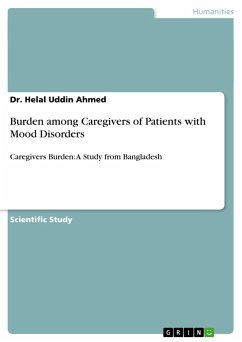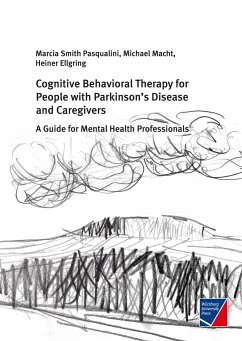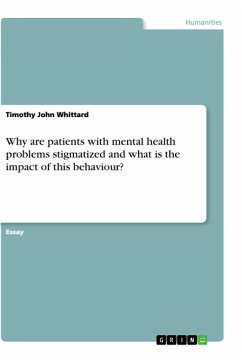
Burden among Caregivers of Patients with Mood Disorders
Caregivers Burden: A Study from Bangladesh
Versandkostenfrei!
Versandfertig in 1-2 Wochen
47,95 €
inkl. MwSt.

PAYBACK Punkte
0 °P sammeln!
Scientific Study from the year 2011 in the subject Psychology - Clinic and Health Psychology, Abnormal Psychology, grade: 75%, , course: MD (Doctor of Medicine) in Psychiatry, language: English, abstract: Mood disorders impose a significant burden on a personal, medical and socioeconomic level of the caregivers. It is observed in Bangladesh that in almost all sort of patient with psychiatric illness including mood disorders depend on the care of their family members. It is a common practice and convention that every patient needs a compulsory whole time caregiver from their family during his o...
Scientific Study from the year 2011 in the subject Psychology - Clinic and Health Psychology, Abnormal Psychology, grade: 75%, , course: MD (Doctor of Medicine) in Psychiatry, language: English, abstract: Mood disorders impose a significant burden on a personal, medical and socioeconomic level of the caregivers. It is observed in Bangladesh that in almost all sort of patient with psychiatric illness including mood disorders depend on the care of their family members. It is a common practice and convention that every patient needs a compulsory whole time caregiver from their family during his or her hospital stay, especially in public hospitals. The objectives of this study are to determine the level of burden of caregivers of patients with mood disorders attended in a tertiary care hospital and to identify the possible association of duration, type of mood disorders, and the socio demographic variables on the burden of caregivers. This was a cross sectional, analytical and descriptive study done in a tertiary care hospital located in Dhaka, city. Sample size was 95. The SCID-I applied on the subjects and they diagnosed mood disorders according the Axis I diagnosis of DSM IV. Caregiver's burden was assessed by using the Zarit Burden Interview (ZBI). It was found the positive relationship with the disease duration and caregiver burden level (p=0.000). The duration of providing care also significant (p=0.000) with the higher level of burden. Caregivers occupation influenced to the higher burden level p=0.047). Among the patients 44.2% diagnosed Major Depressive Disorder, 43.1% Bipolar Mood Disorder (Manic), 7.4% Bipolar Mood Disorder (Depressive) and 5.3% diagnosed Dysthymic Disorder. The caregiver from nuclear family (74.7%) felt higher degree burden than caregivers from joint family (24.3%). The family type and burden level bound significant relationship (p=0.013). Regarding the burden level 54.8% caregiver possessed severe burden, 24.2% moderate to severe burden, 18.9% mild to moderate burden and 2.1% possessed little or no burden. Caregivers' burden depends on the disease duration as well as some socio demographic factors. To provide a total care to the patients with mood disorders it is necessary to mitigate the caregiver's burden. For this reason clinicians need to review periodically the status of caregiver's burden. Further exploration is needed in future to assess the caregiver burden in community based, multi centered approach in long term follow up with a large sample size.












